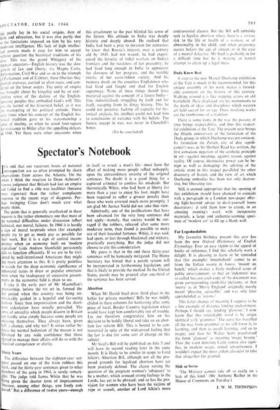For Logodaedalists
My favourite birthday present this year has been the new Oxford Dictionary of English Etymology. Ever an easy victim to the appeal of books of reference, I find this scholarly work &- delight. It is pleasing to learn or be reminded that (for example) 'mountebank' comes to us from the Italian monta in hanco, 'mount on bench,' which evokes a lively medieval scene of public entertainment: or that an 'indenture' was so called because each copy of the document was given corresponding tooth-like incisions; or that 'merry' as in 'Merry England' originally merely meant 'pleasing. agreeable,' and was only later apprehended as 'joyous.'
This latter change of meaning I suppose to be a fine example of distance !ending enchantment. Perhaps I should say, lending 'glamour.' I now know that this remarkable word is by origin identical with 'grammar.' The sense has travelled all the way from grammar as we still know it, to learning, and then to occult learning, and so to magic; and then Sir Walter Scott popularised the form 'glamour' as meaning 'magic beauty.' Thus the word denoting Latin syntax also signi- fies, in modern usage, sexual attractiveness. I wouldn't expect the most ardent classicist to take that altogether for granted.














































 Previous page
Previous page